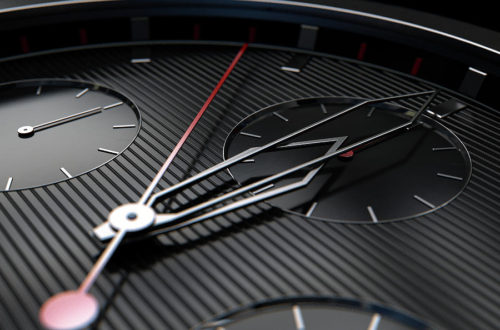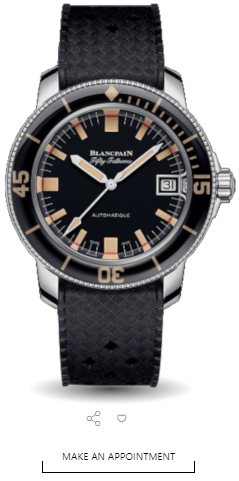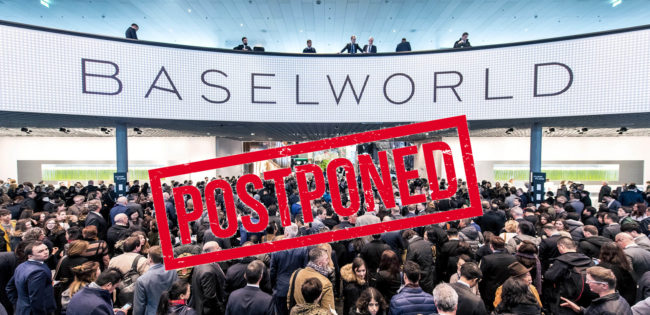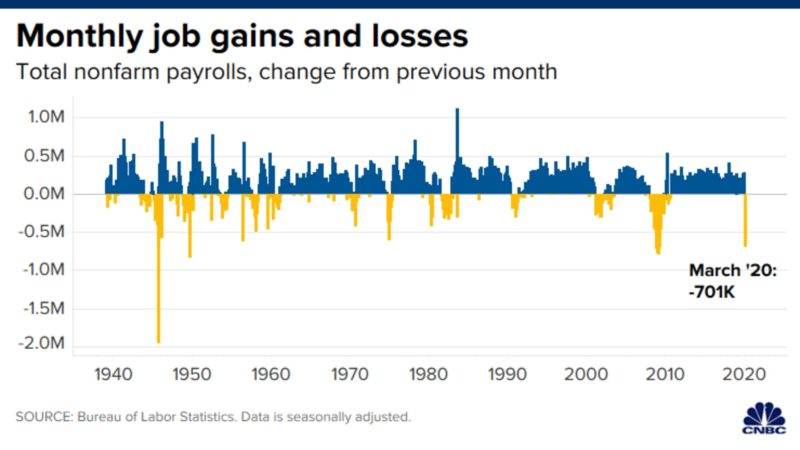The Coronavirus has affected all of our lives to a certain degree. In these times of uncertainty, there's a lot of speculation about how long we're going to be on lockdown. The answer will vary depending on where you live, but most of us won't see the light of day for at least a few months.
In such a crisis it's easy to be self-centered and only see how this virus affects our daily lives. In reality, the COVID-19 will have some devastating impacts on tons of industries, and watchmaking is one of them.
In this article, we will explore the 5 reasons why watchmakers will be amongst the biggest losers of the Coronavirus, and what you can do to help.
1- Generalized Job Loss
This first argument is true for almost every single business out there. People with non-essential jobs are all laid off, causing a major spike in unemployment. This means that a lot of people will have a lot less disposable income.
Case in point, the U.S Labor Department reported on April 3rd that the number of jobs plunged by 701 000 in March, which is very close to the number we saw amidst the 2008-2009 crash (-800 000). Considering that new measures are put in place every day to stop the COVID, this is only the beginning.
While this will affect every business in some way or another, the watch industry will particularly take a hit. The reason is simple: watches are a luxury good. In an era where you have an atomic clock at the tip of your finger, watches are never a true necessity.
This means that luxury brands like Rolex, Omega, etc. will lose tons of sales as people start slashing their luxury expenses. Even affordable brands like Timex and Seiko will feel the negative effects of job losses, but to a lesser degree.
2- Closed Watch Stores
Some industries, like streaming services or food providers, won't feel the effects of closed unessential stores. Unfortunately, this isn't something that can be said for watch stores. Since they're deemed unessential, most governments order for them to be closed for at least a few months.
One might argue that it doesn't matter since most watches can be bought online these days, but it is easy to refute this argument. There are three main reasons why a large portion of collectors prefer buying watches in a brick-and-mortar store:

1- It's very hard to tell a watch's size simply by looking at measurements online. For instance, a lot of retailers only display the case diameter, but that doesn't tell the whole story.
One great example is comparing the Orient Mako II and the Ocean7 LM5. The former has a 41.5mm case, while the latter has a 42mm case. One could think that they are similar in size. In fact, the Mako II's lug-to-lug length is 47mm, whereas the LM5 has a 53mm L2L. This means that the Mako II will look awesome on a 6.5'' wrist, while the LM5 will have massive lug overhang and look goofy.
There are also a lot of variables that change how a watch looks on your wrist (curved vs flat lugs, case thickness, curved vs flat crystal, etc.). This is the first reason why a lot of people preferer seeing the watch on their wrist before spending big money.

2- Pictures and videos simply can't capture every single detail of a timepiece. When you spend a lot of money on a watch, the value you get is mostly in small features that are easy to miss.
For example, it can be hard to differentiate a sunburst vs a lacquered dial in a picture. This also goes for small things like applied vs painted indices, brushed vs blasted finish, etc.. Even colors often look way different in pictures and in person.
3- The last reason why brick-and-mortar stores are such an important part of the watch community is that the industry itself is very old-fashioned. This means that it's sometimes retiscent to changes, such as selling online.
For instance, some luxury watch brands like Blancpain won't even bother displaying their prices online. Instead, they will encourage you to book an appointment and see it for yourself.

The reason why they do this is not rocket science, it's much easier to sell a timepiece when you have it on your wrist and you already started building an emotional attachment to it.
For the three reasons noted above, both watchmakers and watch stores will have a lot of trouble going through the COVID-19 crisis. The biggest impact will be for small mom & pop shops that don't have tons of money to support the fixed expenses of their business for a long period.
3- Closed Factories
Not only are watch stores closed, but most factories are also forced to stop production. This means that watchmakers both have impaired sales and production capacities, which can lead to a big problem down the road.
Not everyone will be impacted the same way by this forced closure. Huge conglomerates like the Swatch Group are prepared for headwinds like this, so they can go for a long time without producing any watches and still get lots of online sales.

As you can see above, the Swatch Group constantly keeps a large inventory of watches on hand, standing at over 3.6 Billion CHF ($3.7 Bn) in 2019. This is enough inventory to support sales for at least a full year, so a few months of closed factories won't make a dent in the availability of their watches.
Unfortunately, smaller microbrands don't make billions of dollars in revenue, so they don't have the luxury of keeping years worth of watches in inventory. Some of these microbrands already had difficulty supplying enough watches for the demand, and this might make things much worse.
One example that comes to mind is Lorier. This great watchmaker is sought-after by lots of collectors, but the company is currently facing big production issues. The four different models they offer are currently sold out.

Their website says that two of the four models will be back in Spring 2020, but this seems less likely as days go by. If the production-halt was to continue for several months, there would be a big question mark on the future of the company, as it's hard to survive months with $0 revenue.
4- Cancelled Watch Shows
Baselworld, the largest watch show in the world, is usually held at the beginning of May in Switzerland. To take precautions, the organizers of Baselworld already decided to postpone the show to January 2021.

This created a lot of commotion for watchmakers considering they pay in advance a huge exhibit fee. Directors of large brands across the industry, like Rolex's head of investments and logistics , complained about the new dates (Jan 28th to Feb 2nd).
In an open letter to Baselworld's organizers, he stated that the dates chosen are inadequate for optimal attendance and he also criticized the compensation plan for watchmakers that reserved their exhibition.
Other big shows, like the "Salon International de la Haute Horlogerie", have yet to be postponed. In my opinion, it's only a question of time before they cancel their show too, as most shows are scheduled in April or May.
Why is this bad?
Watch exhibitions such as Baselworld and the SIHH are vital to the horology industry. They create a lot of hype around newly-released models, which in turn drives a great number of sales.
Without these shows, the watch industry turns stale and gets swept under a rug. Case in point, Rolex, Tudor, and Patek Philippe already announced that all their new 2020 models releases are suspended until further notice.
Also, the bad management of the crisis from shows like Baselworld created a lot of friction between watchmakers and organizers that may lead to irreversible damages. For instance, a Swiss magazine reports that many watchmakers menaced to completely abandon Baselworld if they refused to refund the full exhibit fee.
5- Europe's Vulnerability
It's no secret that Europe is the epicenter of watchmaking and horology. While you may automatically think about Switzerland, there're also a few other important watch producers such as France and Germany.

source, as of April 9th 2020
As you can see above, both Germany and France are in the 5 countries with the most COVID-19 cases. This means that they need to put every single measure possible in place to reduce the number of new cases. This includes closing down jewelers and watch factories.
While Switzerland isn't touched as harshly by the Coronavirus as other nations (currently #11 in the world), they are at a huge risk because they're in the dead center between France, Italy, and Germany, three of the most affected countries.

One country that seems to escape the virus is Japan, which is currently #32 in the world with under 5,000 cases (impressive for a 127,000,000 residents population). This means that Japanese watchmakers like Seiko and Citizen might have an edge over Europeans over the next few months, as they'll be able to recover much more quickly than the rest.
How can you help?
1- Buy watches online
If you're lucky enough to keep your full income during these hard times, the best way to do your part is to keep buying watches as you would normally do.
If you're usually not comfortable buying watches online, now might be the best time to try it. Watchmakers are aware of what's going on and they usually have a pretty good return policy.
This way, you can order a watch or two, see which one you like the best and return the other one for free.
2- Support microbrands
If you're usually someone that sticks to known manufacturers such as Seiko, Rolex, Omega, etc., now might be a great time to try out a microbrand. As I mentioned in the article, these are the ones that will suffer the most from COVID-19 as they don't have billions of dollars and large credit facilities to get through the crisis.
Before buying from a huge conglomerate like Swatch Group or Seiko Epson, try a smaller brand that may count on your purchase to keep food on their family's table.
3- Support your local horologist
A lot of local independent horologists are still open for business even during the quarantine. Most will leave a drop-box or something similar in front of their offices where you can safely drop off one of your timepieces.
This way, you can get your watches serviced or repaired without being in direct contact with someone else. This allows you to help someone that relies on your business.
Even if your mechanical watch isn't due for service before a year or two, you could still get it serviced preemptively to support your horologist in these hard times.
4- Support blogs & forums
The first three solutions implied that you would need to spend money. What if you lost your job and you can't afford a watch right now?
The best way to help the industry without spending a dime is to support bloggers, YouTubers, and forums. Simply by viewing their content, you can create a steady income flow for them without spending anything.
If you usually roam the internet with an Adblocker, you should probably deactivate it now. In exchange for viewing a few ads, you will be able to support content creators that really need your help during this crisis.
In conclusion, the Coronavirus will be a hard-to-get-through period for every single person and business on the planet. The most important thing we can do during these hard times is to support each other in any way we can, and try to stay positive throughout all this.






I actually have a question. My wife bought me a seiko land monster 7s35 caliber and it has gotten beat up over the years and now will not keep running for long, needs a new crystal and bezel. I am fairly technically adept are a musical instrument repair person for years. I’m having trouble finding parts or possible mod parts for the watch. Is there any direction you can point me in to help me narrow down the needed items? Any help would be greatly appreciated.